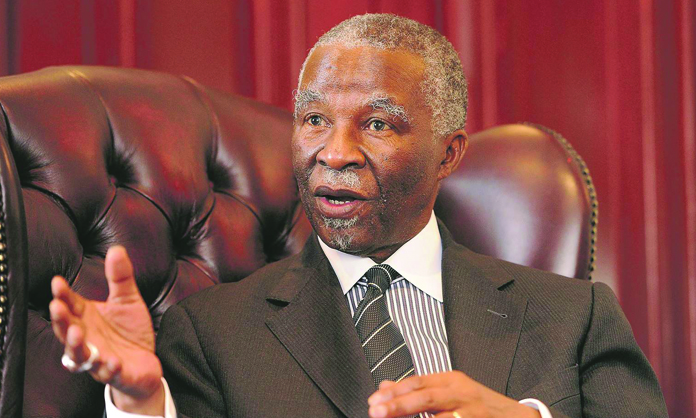Former South African president Thabo Mbeki says there is a need for principled political leadership to ensure the discovery of oil and gas deposits in Namibia becomes a blessing rather than a curse for the country.
He says in many instances, when oil and gas discoveries are made in a country, it brings benefits, but also has many negative consequences.
“It’s a very sensitive matter and requires a very principled political leadership,” Mbeki said during an interview with the Namibian Broadcasting Corporation on Sunday.
Between February 2022 and July 2023, Namibia made significant oil discoveries, including the Graff-1, Jonker-1X, La Rona-1 and Lesedi-1X discoveries in PEL 39 by Shell Namibia Upstream BV and partners, as well as the Venus-1 discovery in PEL 56 by TotalEnergies EP Namibia and partners.
Mbeki said president Hage Geingob’s death has left a void and that his type of leadership is exactly what is needed to be able to properly manage these discoveries.
“I was very glad that we had comrade Hage there in the leadership of Namibia as Namibia was making these important discoveries, because they need proper, principled, revolutionary management to make sure those resources are used in the best interests of the people and don’t have negative consequences,” he said.
Mbeki said the Fishrot scandal, which implicated high-ranking Namibian officials, including two Cabinet ministers, in corruption related to fishing quotas, serves as a stark reminder of the dangers of unchecked corruption in resource-rich sectors.
“I followed the negative story about the fisheries corruption and allegations of corruption around the matters of fishing and licensing in Namibia. That problem would be multiplied once you have to deal with oil and gas and so on,” Mbeki said.
Political analyst Rui Tyitende says Mbeki should be forgiven for his remarks about Geingob’s leadership as he is not privy to the dynamics and intricacies of Namibia’s political and economic landscape.
Tyitende says Mbeki may, for example, not know that the late president thanked former ministers Sacky Shanghala and Bernhard Esau, who are two of the accused in the Fishrot case, for their “patriotism and contribution to the work of the government”.
He highlights a statement made by Geingob in 2022, in which he said the majority of Namibia’s oil reserves belong to foreign investors such as Shell and TotalEnergies rather than the country itself.
“As a country, we should not be under any illusion that the proceeds from oil and gas would be steered towards uplifting the downtrodden,” Tyitende says.
He draws parallels between the fisheries industry and the emerging oil sector, depicting both as exclusive domains controlled by wealthy elites and their associates.
“Any person thinking otherwise is daydreaming. Without corruption, Swapo will not be able to lubricate its support structures and attract people who join for the sole purpose of eating and getting fat,” Tyitende says.
MORE EFFORT NEEDED
Graham Hopwood, the director of the Institute for Public Policy Research (IPPR), says significant effort is still required to safeguard Namibia’s petroleum sector against corruption.
“We have a long way to go to achieve transparency in the extractives sector in general, including mining and fisheries,” he says.
Hopwood criticises the lack of transparency in the allocation of petroleum exploration licences, citing it as an example of opacity within the sector.
“There are a number of reforms that need to be introduced, including joining the Extractive Industries Transparency Initiative, if we want to be sure that the benefits of oil will come to the Namibian people and not just to a corrupt political elite,” he says.
Stay informed with The Namibian – your source for credible journalism. Get in-depth reporting and opinions for
only N$85 a month. Invest in journalism, invest in democracy –
Subscribe Now!






